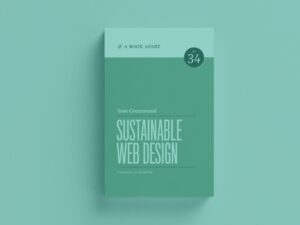
In August, our team was lucky enough to attend a Bitesize session delivered by Chris and David, two of the Co-founders of Net Zero International. Their ethos is to support businesses on the road to Net Zero, by helping to demystify the landscape and make it easier for businesses. Their presentation focused on climate change and why Net Zero is so important.
Whilst our team is already passionate about digital sustainability, we were blown away by some of the things that Chris and David highlighted, and we’re sure that you will be too. One of these sobering facts is that the number of trees burned down by recent wildfires across California has wiped out their carbon offset buffer.
This article will give you an introduction to the concept of Net Zero, as well as discussing the types of businesses that could benefit from becoming NetZero and will finish off with a look at the UN’s Race to Zero. If you’re interested in these concepts and in learning more about sustainability in general, watch out for more content coming soon – or get in touch with Chris and David.
What does Net Zero mean?
Net Zero is essentially the world’s way of stopping climate change through the reduction of harmful carbon emissions. The definition of ‘net zero’ for a company is the balance between the amount of carbon produced by that company and the amount removed from the atmosphere. To have a net of zero, you can only be contributing as much carbon as you are also taking away.
On 27 June 2019, the UK became the first major economy in the world to pass a net zero emissions law with a legally binding target of being net zero by 2050. The Government states that:
‘Net zero means any emissions would be balanced by schemes to offset an equivalent amount of greenhouse gases from the atmosphere, such as planting trees or using technology like carbon capture and storage.’
However, working out what your greenhouse gas emissions are, and then devising a plan to offset and become Net Zero is no mean feat for any business.
Chris says: ‘with the current climate challenges that we face, and the recent COP26 in Glasgow, Net Zero is a very important factor that a lot of businesses are starting to take an interest in. We wanted to set up a business that helped other businesses and people to understand Net Zero and dispel misconceptions in this space and to make it easier for people to understand their carbon emissions’.
Net Zero is very different from Carbon Neutral, which we will explain in more detail in our next blog with Net Zero International.
What surprising things are part of a business’ carbon footprint?
A business’ carbon footprint is the amount of greenhouse gases the business is responsible for releasing each year. Emissions are separated out into three scopes.
- Scope one includes all of your direct emissions (the gas and fuel that you buy and burn personally) such as all of your company facilities (office buildings, factories etc.) and company vehicles.
- Scope two includes indirect emissions (fuel that you buy that’s already been burnt to create something) like the purchase of electricity, steam and heat.
- Scope three is also indirect, but this would include everything else in a company’s value chain and there are 15 different types of these ranging from employee commuting and leased assets to use of sold products, investments, and franchises. It might be surprising to know that it is likely that at least 80% of your emissions come from scope three activities, making it a big challenge for companies aiming to achieve Net Zero.
It can be incredibly difficult and complex to work out the scope three emissions of a business, but this is something that Net Zero International does with their accounting software for all sizes of organisation.
What kind of businesses could benefit from measuring their carbon footprint?
In a word, all!
Every type of business can benefit from understanding their carbon emissions, because once you have a benchmark you can start to reduce it. This is beneficial for a number of reasons:
- Ethical consumerism is on the rise – The 2021 Ethical Consumer Markets Report saw ethical consumer spending and finance in the UK in 2020 exceed the £100bn mark for the first time.
- Employees care about the environment – in a study of 2000 UK office workers, 72% stated that they were concerned about environmental ethics and 83% said their workplaces were not doing enough to address climate change.
- Energy inefficiency is costly – becoming more sustainable reduces waste within a business, thus positively impacting the bottom line. The rise in energy costs over the past few months continues to have a detrimental effect on many businesses and doing all we can to increase energy efficiency is not only good for the environment, it’s crucial to profitability.
- Some businesses are legally required to measure their carbon footprint – Some types of businesses are now actually required to show their carbon outputs. For example, FTSE 250 companies must have a carbon report readily available on their website.
Chris and David believe that this requirement for transparency around carbon output will transpose down to smaller companies in the coming years so it’s best to get ahead in this space as soon as possible.
Why should public sector organisations measure their carbon emissions?
Since the beginning of the Industrial Revolution in the 1880s, the world has warmed by around 1.25 degrees on average. We need to ensure that we don’t get to 1.5 degrees of warming because if we hit this point then there will be some significant challenges to our daily lives. For every one degree of heat increase around the world, it is estimated a billion people are displaced.
Recent climate changes show that the world is changing because of greenhouse gas emissions stopping heat from being released from the atmosphere – causing it to warm up. Those significant challenges are already occurring. Temperatures in the 40s in the UK this summer, wildfires across the country and flash floods closing roads and the London tube network this year and last year are close to home examples of this.
Extreme weather conditions cause fires, extensive flooding and rising sea levels, extreme winds, and extreme heat. All of these things have a detrimental effect on the population and lead to population displacement (seen recently in Pakistan), destruction of property, and ultimately poverty and death. It’s not a pretty picture, but there is so much that we can all do to change things.
In order to protect our planet, businesses need to do their bit, and this can start by measuring their output.
If you’re worried about your business’ carbon emissions and want to do better for the environment, then Net Zero International are the perfect people to talk to. They offer something which they call ‘Carbon AAA’
- Advice – training and consultancy to get businesses on the road to Net Zero
- Accounting – using their carbon accountancy software to help businesses understand their current company-wide carbon footprint for a financial year. Data is input monthly to show changes and (hopefully) improvements.
- Auditing – completed by an independent organisation, to ensure an organisation’s carbon reduction plan is in line with the UN Race to Zero regulations.
What rules surrounding sustainability might impact businesses in the future?
The UK Government’s commitment to Net Zero by 2050 means that all UK businesses will have to be Net Zero by this point or they will not be able to trade. For Scotland, the date is 2045. More and more countries are starting to do the same, which will affect a huge amount of businesses worldwide.
For a business to be Net Zero, they will need to mitigate a minimum of 90% of their baseline emissions with the residual being offset via recognised offsetting schemes.
David says: ‘One of the things that we know is going to happen is, because of the COP meetings, historically countries have had to come back with a new nationally defined contribution, which is a new increased commitment to reducing their emissions, every five years. In Glasgow, it was decided that this would now be annually’.
Businesses that manufacture or use vehicles will be impacted by sustainability rules as the sale of new petrol and diesel vehicles will be banned from 2030 (brought forward from 2040). All petrol and diesel vehicles will be banned by 2040.
David says that what this really means for businesses is that we ‘are going to see regulation, legislation and increased costs for carbon which is why this is so important now for organisations to start to understand what their emissions are and start to reduce them’.
COP27 is coming up in Egypt on 6-18th November, where we may see new policies coming into force – it’s important for businesses to follow the outcomes of these COP conferences to ensure that they are working towards sustainability requirements.
What is the UN’s Race to Zero?
The Race to Zero is a worldwide campaign, started in 2020 and backed by the United Nations, to bring together organisations, businesses, cities, regions and investors to lead the way to zero carbon.
All members of the Race to Zero have to be committed to ‘accelerating the delivery of climate action in line with halving global emissions by 2030 and achieving net zero emissions by 2050 at the very latest’.
Membership has increased from around 2000 members in June 2020 to nearly 8000 in November 2021 when COP26 took place. Any organisation, company, city, region, or investor can join the Race to Zero.
Joining up means that your efforts to reduce your emissions will be recognised as credible (not greenwashing) and are science based. You’ll be able to tap into the tools and knowledge of the Race to Zero community (as well as sharing your own) and participate in events.
If you want to find out more about Net Zero, talk to Chris and David.
We’ll be sharing more of their insights in the coming weeks, and answering questions like ‘what can businesses do to improve visibility over their supply chain’, ‘what is ESG’ and ‘is it possible for any business to reach Net Zero’ as well as talking about how our Digital Carbon Footprint Audit can help.
Keep an eye out for this content soon!






